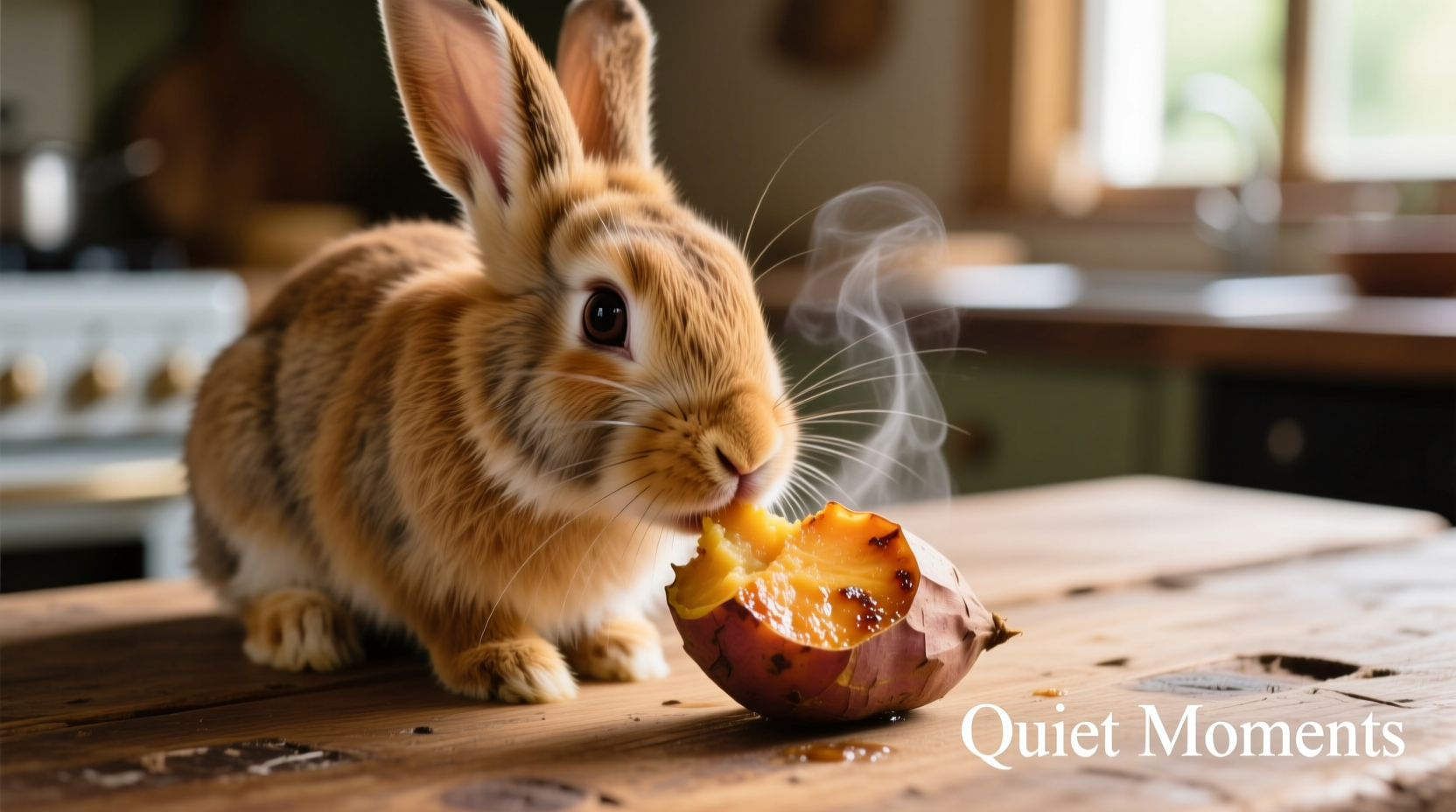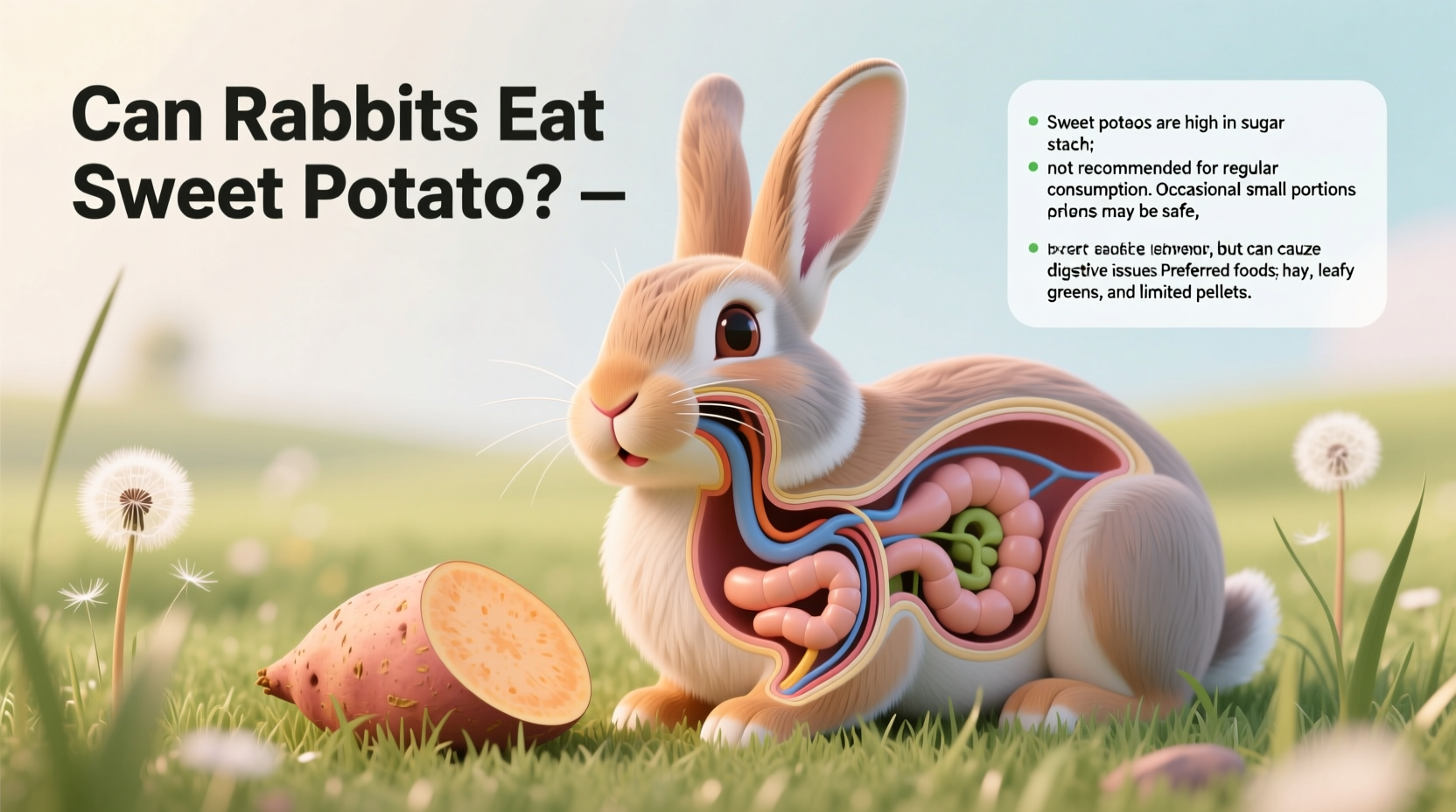Understanding Rabbit Digestion and Dietary Needs
Rabbits have highly specialized digestive systems designed for a high-fiber, low-sugar diet. Their gastrointestinal tract relies on constant movement of fibrous material to function properly. According to the House Rabbit Society, a proper rabbit diet should consist of 80-90% grass hay, 10-15% leafy greens, and only 2-5% treats like vegetables or fruit.
Sweet potatoes fall into the treat category but require special consideration due to their nutritional profile. Unlike humans, rabbits cannot properly process large amounts of starch and sugar, which can lead to potentially fatal gastrointestinal stasis - a condition where the digestive system slows or stops completely.
Sweet Potato Nutrition vs. Rabbit Requirements
While sweet potatoes contain some beneficial nutrients, their composition doesn't align well with rabbit dietary needs. Let's examine the nutritional differences:
| Nutrient | Sweet Potato (per 100g) | Ideal Rabbit Treat (per 100g) |
|---|---|---|
| Carbohydrates | 20.1g | 2-5g |
| Sugar | 4.2g | 1-2g |
| Starch | 15.9g | Minimal |
| Fiber | 3g | 2-3g |
| Water Content | 77g | 85-90g |
This nutritional mismatch explains why sweet potatoes should only be occasional treats. The American Veterinary Medical Association emphasizes that high-starch foods can disrupt the delicate balance of bacteria in a rabbit's cecum, potentially leading to serious health complications.
Safety Considerations for Feeding Sweet Potato
When considering sweet potatoes for your rabbit, several safety factors must be addressed:
Raw vs. Cooked Sweet Potato
Never feed raw sweet potato to rabbits. Raw sweet potatoes contain complex starches that rabbits cannot properly digest, potentially causing blockages. Always serve cooked sweet potato that has been boiled or baked without any added seasonings, oils, or butter.
Sugar Content Concerns
The sugar content in sweet potatoes, while moderate for humans, is too high for regular rabbit consumption. According to research published in the American Journal of Veterinary Research, excessive sugar intake in rabbits can lead to dental problems, obesity, and digestive disorders.
Portion Control Guidelines
For a medium-sized rabbit (5-6 pounds), the maximum safe portion is:
- 1-2 small cubes (approximately 1 teaspoon) once or twice weekly
- Never exceed 1 tablespoon total per week
- Always introduce new foods gradually over 2-3 weeks
Practical Feeding Recommendations
If you decide to offer sweet potato to your rabbit, follow these veterinarian-approved guidelines:
Preparation Method
Peel the sweet potato, cut into small cubes, and boil or bake until soft. Allow to cool completely before serving. Never add salt, sugar, spices, or any seasonings. Remove any uneaten portions after 2 hours to prevent spoilage.
Monitoring Your Rabbit
After introducing sweet potato, watch for these signs of digestive distress:
- Decreased appetite or refusal to eat hay
- Fewer or smaller fecal pellets
- Lethargy or unusual hiding behavior
- Teeth grinding (indicates pain)
If you notice any of these symptoms, discontinue sweet potato immediately and consult your exotic veterinarian.
Better Vegetable Alternatives
For regular vegetable offerings, these options provide better nutritional alignment with rabbit needs:
- Leafy greens (romaine lettuce, cilantro, parsley)
- Herbs (basil, mint, dill)
- Cruciferous vegetables (broccoli leaves, cauliflower leaves)
- Sweet bell peppers (red, yellow, orange)
Unlike sweet potatoes, these vegetables offer higher fiber content with significantly lower sugar and starch levels, making them safer for regular inclusion in your rabbit's diet.

When to Avoid Sweet Potato Completely
Certain rabbits should never be given sweet potato, including:
- Rabbits under 6 months old (still developing digestive systems)
- Rabbits with a history of gastrointestinal issues
- Overweight rabbits or those prone to obesity
- Dwarf breeds which are more susceptible to digestive problems
The House Rabbit Society reports that approximately 30% of rabbit health issues seen by veterinarians relate directly to improper diet, with starchy vegetables like sweet potatoes being a common culprit when fed inappropriately.
Conclusion: Sweet Potato as an Occasional Treat
Sweet potatoes can be part of a varied rabbit diet when offered in strict moderation. Remember that hay should always form the foundation of your rabbit's nutrition, with vegetables and treats playing only a supplementary role. When in doubt about any food item, consult with a veterinarian who specializes in exotic pets before introducing it to your rabbit's diet.











 浙公网安备
33010002000092号
浙公网安备
33010002000092号 浙B2-20120091-4
浙B2-20120091-4